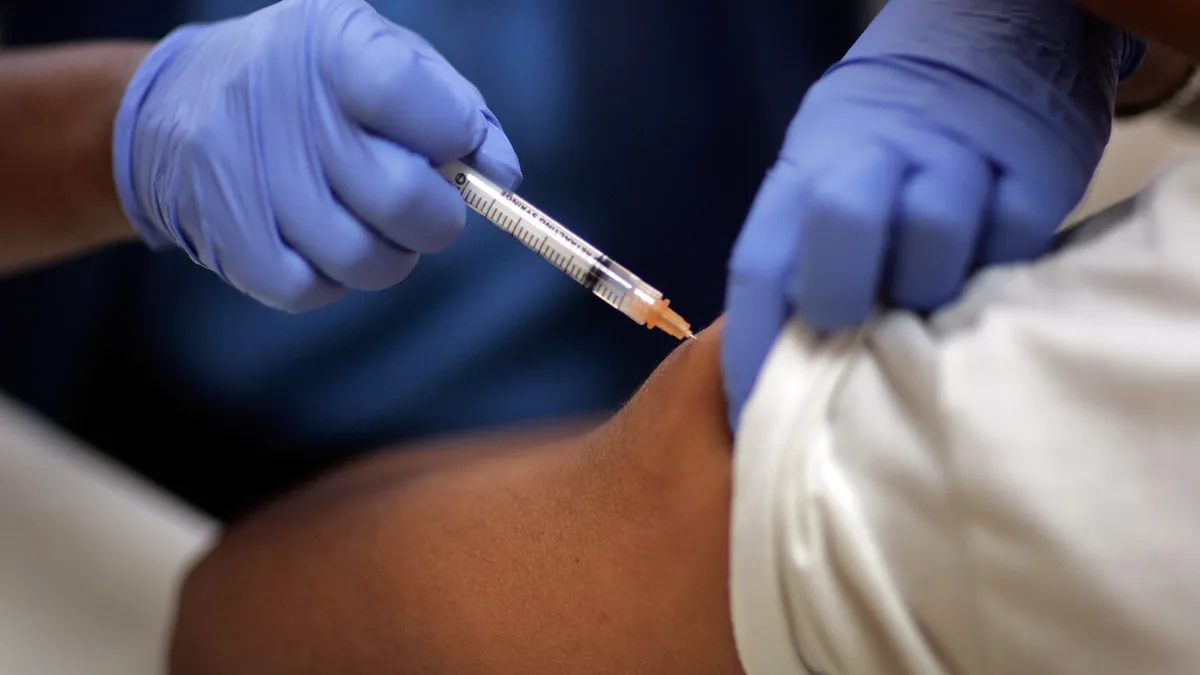Dive Brief:
- Nearly 3 in 10 adults say parents should be able to choose not to vaccinate their school-age children for measles, mumps and rubella despite posing a health risk to others, according to a Kaiser Family Foundation poll released Friday. That rate, 28%, compares to 16% in 2019 per an October 2019 Pew Research Center poll.
- While a majority of adults — 71% — still support vaccine requirements in schools, that number is down from 82% in the 2019 Pew Research Center poll.
- Among those who identify as Democrat or Democrat leaning, 91% were more likely to say in the Kaiser poll that the benefits of these vaccines outweigh the risks, compared to 83% of respondents who are Republican or Republican leaning.
Dive Insight:
While a majority of adults still support childhood vaccinations for measles, mumps and rubella, the Kaiser survey showed the pandemic and resulting debates over vaccine mandates seems to have shaped public perception of other long-standing vaccine requirements for public schools.
This comes at a time of heightened concern about possible resurgence of measles. In central Ohio, for example, a measles outbreak beginning in November led to 77 cases among children, most of whom were unvaccinated. As of Dec. 16, some 29 of those children were hospitalized, according to the City of Columbus Public Health.
On a global scale, measles is posing “an imminent threat” to children as a record number of almost 40 million children have not gotten a measles vaccine dose, according to a November report by the World Health Organization and the Centers for Disease Control and Prevention.
“The paradox of the pandemic is that while vaccines against COVID-19 were developed in record time and deployed in the largest vaccination campaign in history, routine immunization programs were badly disrupted, and millions of kids missed out on life-saving vaccinations against deadly diseases like measles,” said WHO Director-General Dr. Tedros Adhanom Ghebreyesus in a November statement.
Measles is extremely contagious but “entirely preventable through vaccination,” the health organizations said. To guarantee herd immunity from measles, a 95% or higher vaccination rate of the two-dose measles vaccine is needed in a community.














